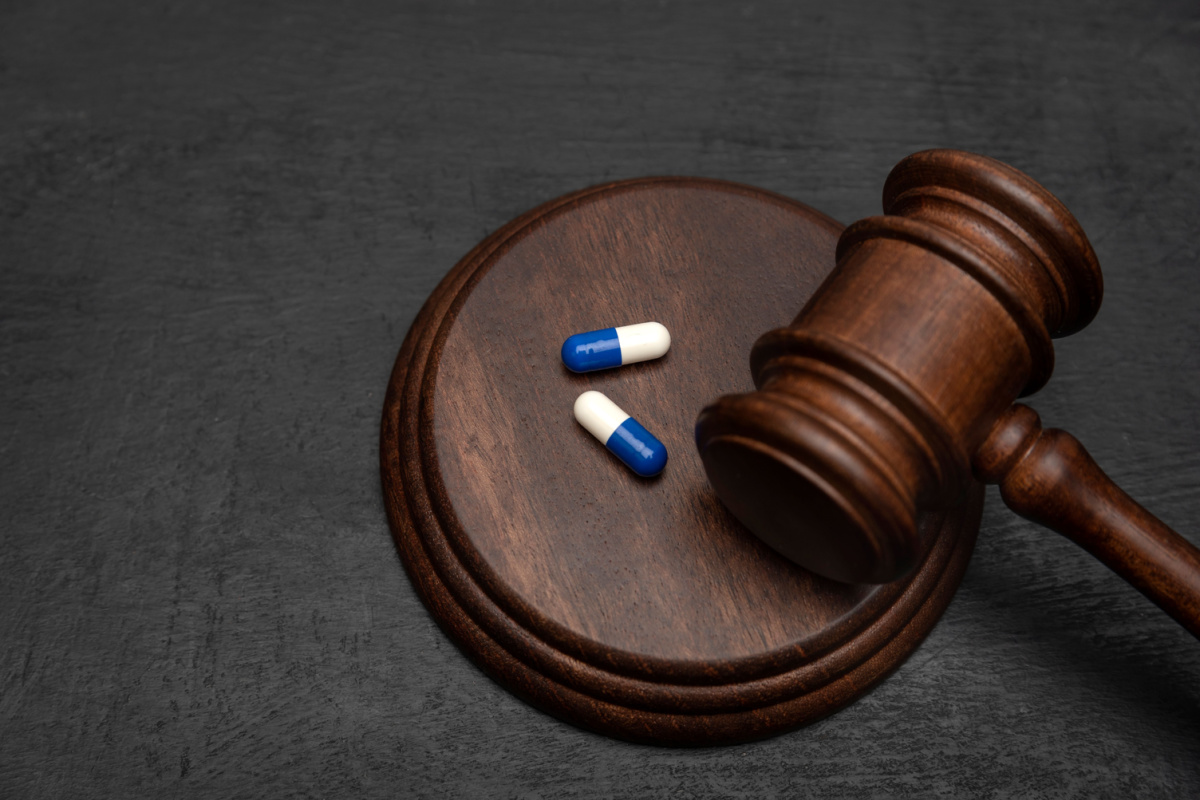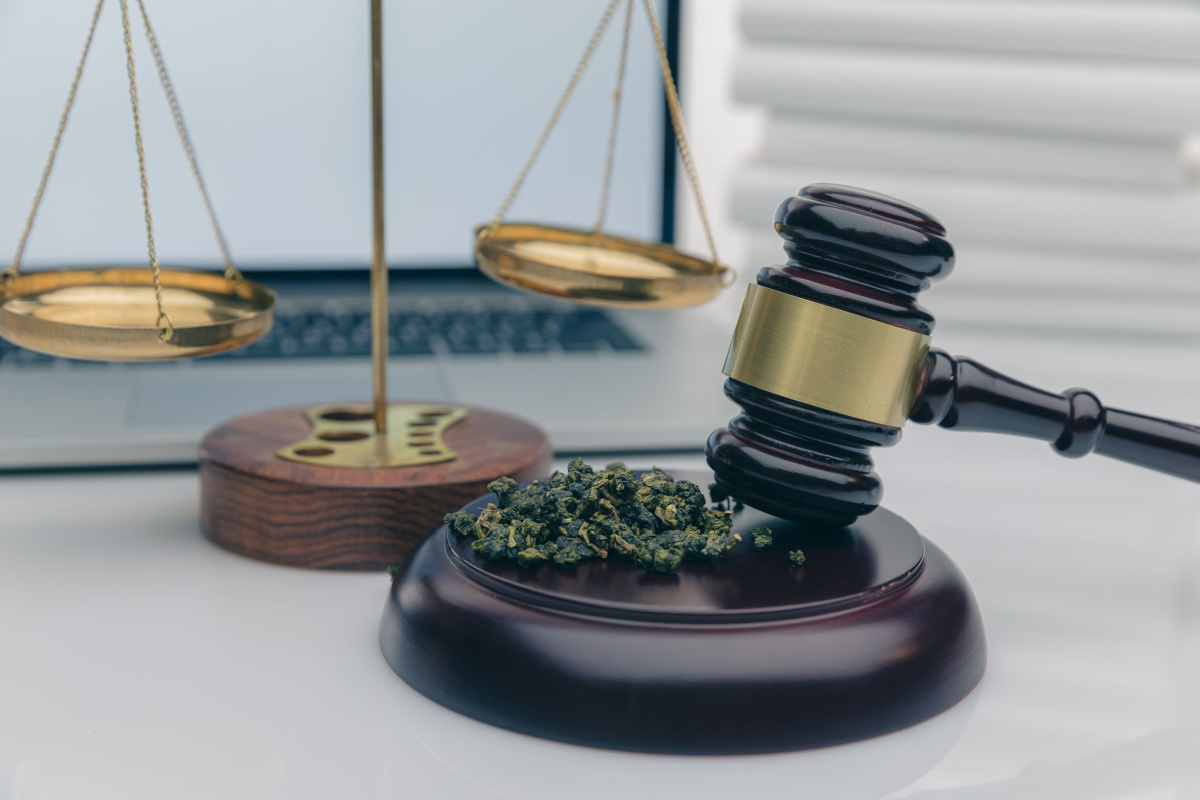According to the Substance Abuse and Mental Health Association, over 360,000 Louisiana residents over the age of 18 have a drug use disorder. These same individuals may end up facing criminal charges during an encounter with law enforcement if found to have drugs on their person.
When someone faces drug possession charges, it means law enforcement believes the person had illegal drugs. These charges can range from minor offenses, like having a small amount of marijuana, to more serious ones, like carrying harder substances. Different states have varying laws on what counts as a minor or serious charge. In some areas, having drugs near a school can lead to more severe consequences. Sometimes, what someone thought was a legal amount or type of drug can still result in charges because laws often change. Each case hinges on specific details: the amount of drugs, the type, and where they were found. These factors can significantly alter the outcome of a case.
Legal Strategies for Challenging Evidence in Drug Cases
In drug cases, legal strategies often focus on questioning the evidence presented by prosecutors. Defense teams scrutinize the method of how law enforcement obtained the drugs, ensuring it aligns with legal protocols. If officers did not follow proper procedures, such as having a valid search warrant, the evidence could be considered invalid. Another approach is examining the accuracy of drug tests. Sometimes, these tests can give false positives, or the substances may be handled incorrectly, leading to contamination. Defense teams may also investigate whether the evidence is directly linked to the individual accused. Without clear proof of possession, the charges might not stand. Each piece of evidence can alter the direction of a case, making detailed examination a key part of the defense strategy.
Key Factors That Influence Drug Possession Defenses
Key factors can greatly influence defenses in drug possession cases. One major element is the amount of the substance found. Small quantities might suggest personal use, while larger amounts could imply intent to distribute, which carries harsher penalties. The type of substance also matters; different drugs have varying levels of legal severity. Location plays a role as well; being caught with drugs near a school can worsen charges. Another factor is the individual’s history with the law; first-time offenders might face more lenient treatment compared to those with prior convictions. Additionally, how the evidence was gathered can affect the case—if law enforcement did not adhere to legal rights or procedures, it might weaken the prosecution’s position. These aspects form the foundation of how a defense is constructed and can greatly affect the case’s outcome.
How to Select a Criminal Defense Attorney for Drug Charges
Selecting a criminal defense attorney for drug charges involves careful consideration. Experience is a top factor; look for a lawyer with a track record in handling drug-related cases. It’s beneficial to find someone familiar with the local courts and laws, offering insight into how cases are typically handled in the region. Reviews and testimonials from past clients can provide real-world feedback on an attorney’s performance and approach to cases. Communication style is also important—choose someone who speaks clearly and explains legal matters in understandable terms. Consider their availability; a lawyer who has the time to focus on a case is preferable. Cost is another factor; while not always reflecting quality, it’s important to ensure the fees are transparent and within budget. These considerations can help in finding a lawyer suited to an individual’s specific situation.
Role of Plea Bargaining in Drug Possession Cases
Plea bargaining plays a pivotal role in drug possession cases. It’s a process where the defendant agrees to plead guilty to a lesser charge, or to only one of several charges, in exchange for concessions from the prosecutor. This might include reduced charges or a recommendation for a lighter sentence. Plea bargains can benefit the accused by offering a quicker resolution and potentially less severe penalties than if the case went to trial. For the court system, lawyers help manage the caseload by resolving cases more efficiently. Prosecutors might prefer plea bargains to ensure a conviction and save the time and resources required for a lengthy trial. While plea bargaining can provide a way to mitigate risk for all parties involved, the decision to enter such an agreement depends on the specifics of the case and the strength of the prosecution’s evidence.
Consequences of a Drug Possession Conviction
A drug possession conviction can lead to a range of consequences extending beyond immediate legal penalties. Legally, an individual may face jail time, fines, or probation. The severity of these consequences often depends on the type and amount of substance, prior convictions, and the jurisdiction’s specific laws.
Beyond the courtroom, a conviction can have lasting effects on an individual’s personal and professional life. This situation can limit job possibilities, given that numerous employers carry out background investigations and often show reluctance to hire individuals with a history of drug-related convictions.. Educational prospects can also be affected, with some colleges and scholarship programs considering criminal history in their admissions and funding decisions. There can be social repercussions as well, impacting relationships and community standing. A drug possession conviction can affect housing options, as some landlords may not rent to individuals with a criminal record. There are also potential impacts on civil rights, including voting and gun ownership.
Preparing for Trial: Steps to Take When Accused of Drug Possession

Preparing for trial when accused of drug possession involves several critical steps to ensure a robust defense. Initially, documentation of all events related to the charge is important, including times, dates, and interactions with law enforcement. Gathering evidence might aid in defense, such as texts, emails, or witness statements, is also crucial.
Legal representation should be secured promptly. A defense attorney can provide guidance on the rights of the accused and the intricacies of the legal process. The attorney will review the charges and evidence, advise on the strengths and weaknesses of the case, and may engage in pretrial motions to suppress evidence or dismiss charges if appropriate procedures were not followed.
An understanding of the charges and potential outcomes is essential. The accused should work closely with their attorney to develop a defense strategy, which may involve challenging the prosecution’s evidence or presenting an alibi. Participation in pretrial hearings will be required, during which the defense can argue for bail conditions, negotiate plea bargains, or address other legal issues.
Finally, the accused should be prepared to make decisions about whether to accept a plea offer or proceed to trial, and if going to trial, whether to testify in their own defense. These decisions should be made in consultation with their attorney, considering all available evidence and the potential risks and benefits.
Call 504-523-6496 or contact our expert team for a free consultation.

